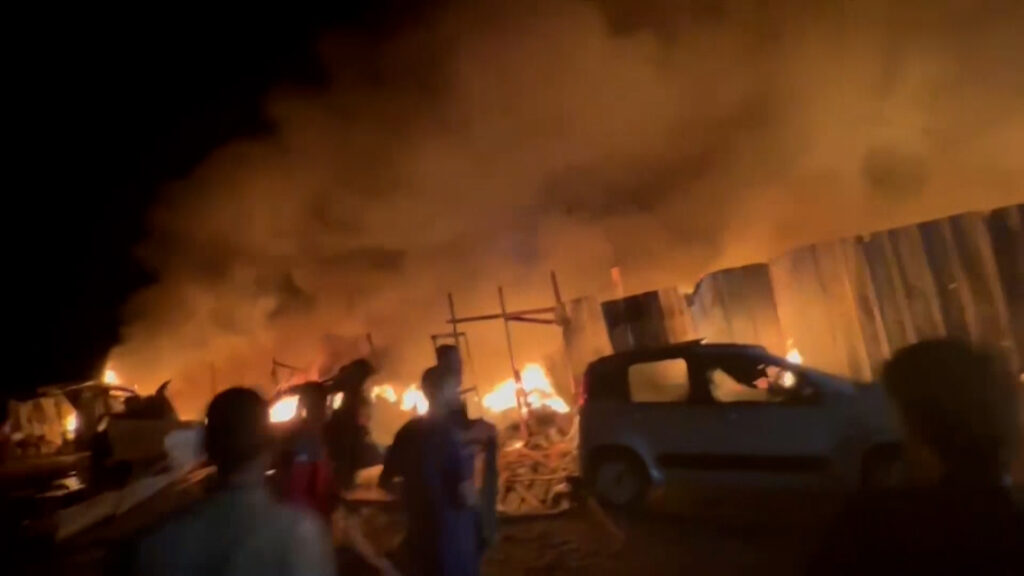5/27/2024–|Last updated: 5/27/202407:02 PM (Mecca time)
Under the title “Gaza’s Stolen Healers… The Disappearance of Hundreds of Palestinian Doctors in Israeli Prisons,” Kavitha Chikuru wrote on the Intercept website, about the arrest and disappearance of doctors in the Gaza Strip with the Israeli aggression.
The writer said that early in November, reports emerged of the arrest and disappearance of doctors in northern Gaza. According to the World Health Organization, the Israeli army has detained at least 214 medical workers in Gaza.
In early May, the arrest and torture of medical staff from Gaza made headlines when Israeli authorities announced the death of Adnan Al-Bursh, a well-known surgeon and head of the orthopedic department at Al-Shifa Hospital.
After being detained in December, officials said Al-Barsh died in April while in Ofer Prison, an Israeli detention center in the occupied West Bank.
An incident was also recorded in which the Israeli army sent a prisoner in handcuffs to evacuate the hospital, then killed him when he left.
Al-Barash is one of at least 493 Palestinian medical workers who have been martyred in Gaza since October 7, according to the Ministry of Health. The IDF systematically targeted hospitals from the north to the south of the Strip, claiming that Hamas operated in these facilities. Medical staff in Gaza’s hospitals have repeatedly denied this allegation.
This week, Israeli forces launched new attacks on Kamal Adwan Hospital and Al-Awda Hospital in the north, as there were reports on Wednesday and Thursday of the detention of medical staff at Al-Awda Hospital.
Attacks on hospitals
As ground forces made their way into southern Gaza by the end of the year, attacks on hospitals in the southern city of Khan Yunis escalated.
In December, Khaled Hamouda, another surgeon, was working at Kamal Adwan Hospital in northern Gaza. A month ago, he was transferred from the Indonesian hospital, where he was practicing his profession as usual.
In Kamal Adwan, Hamouda was also a patient receiving treatment for injuries he sustained in an air strike on his family home in Beit Lahia. His wife, daughter, father and brother, among other relatives, were martyred in the attack.
About 10 days after the raid, Israeli forces ordered medical staff and civilians who had taken refuge in Kamal Adwan Hospital to leave. Hamouda said that the hospital administration was told that people would be able to leave and go to another hospital without being arrested.
This is not what happened. Instead, Hamouda and some of his colleagues were detained by the Israeli army.
Hamouda said: “When they attacked the hospital, they asked all men and young men over 15 years old and under 55 years old to keep their IDs and leave the hospital.”
They were blindfolded, handcuffed and taken to another location, although Hamouda is not sure where.
Shortly after it was taken, photos began circulating on social media of dozens of detainees being held by Israeli soldiers in northern Gaza. In one photo, a group of bare-chested men stand in the foreground while a soldier appears to take their picture. It was not long before people were able to recognize one of the men, called Hamouda.
Mistreatment
Hamouda said: “This is the day they took us from Kamal Odwan Hospital and asked us to look at the camera. It is the only evidence that I was taken on this day. No one knew what happened to us until this photo went to the media.”
Hamouda said he was eventually transferred to Sde Timan, where he and other detainees were forced to kneel. Whoever did not do so was punished. He said about one of the prisoners: “They ask him to stand with his hand above his head for 3 or 4 hours.”
He said: “Unfortunately, when they found out that I was a doctor and general surgeon, they treated me even worse. They attacked me, hitting me in the back and head.” Hamouda said the soldiers wanted to know if he knew about Israelis detained in Gaza, but he didn’t know anything.
During his detention, he also met someone he knew from the medical community, Dr. Adnan Al-Barsh. “They brought Dr. Adnan around two or three in the morning. He was being treated horribly. He was in pain,” Hamouda said. “He said to me: ‘Khaled, they beat me.’” They attacked me violently.” According to Hamouda, Al-Barash also said that he suffered a broken rib. Hamouda was able to provide medicine and some food supplies to Al-Barash, but two days later the injured doctor was transferred.
Despite his condition and the harsh prison conditions, Al-Barash brought the news to Hamouda. Hamouda Al-Barsh remembers what he told him: “Your mother is in Al-Awda Hospital, and she is fine. I treated her.”
Hamouda expressed his gratitude for the letter: “This information was very, very valuable to me because I did not know any information about my family.”
After 3 weeks, Hamouda was released. He told The Intercept that he and other detainees were transferred to the Kerem Shalom border crossing in the south, and eventually went to Rafah. His surviving children and mother are still in the north, and it will take two months before they can be reunited. He considers himself lucky to have been released.
He said: “All my fellow doctors who were arrested with me, after me, or before me, were kept there for 3, 4, or 5 months.” Some are still detained.”

